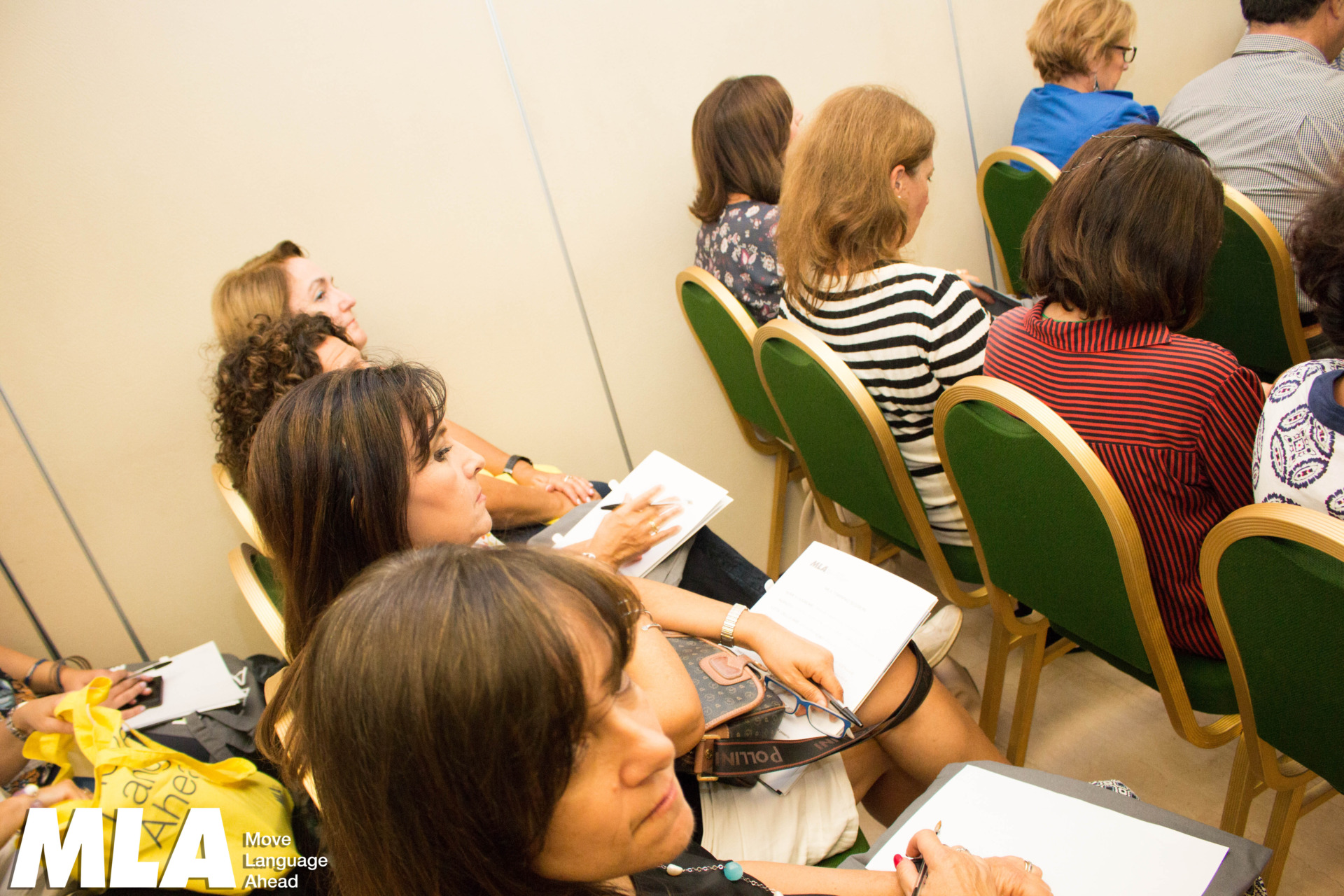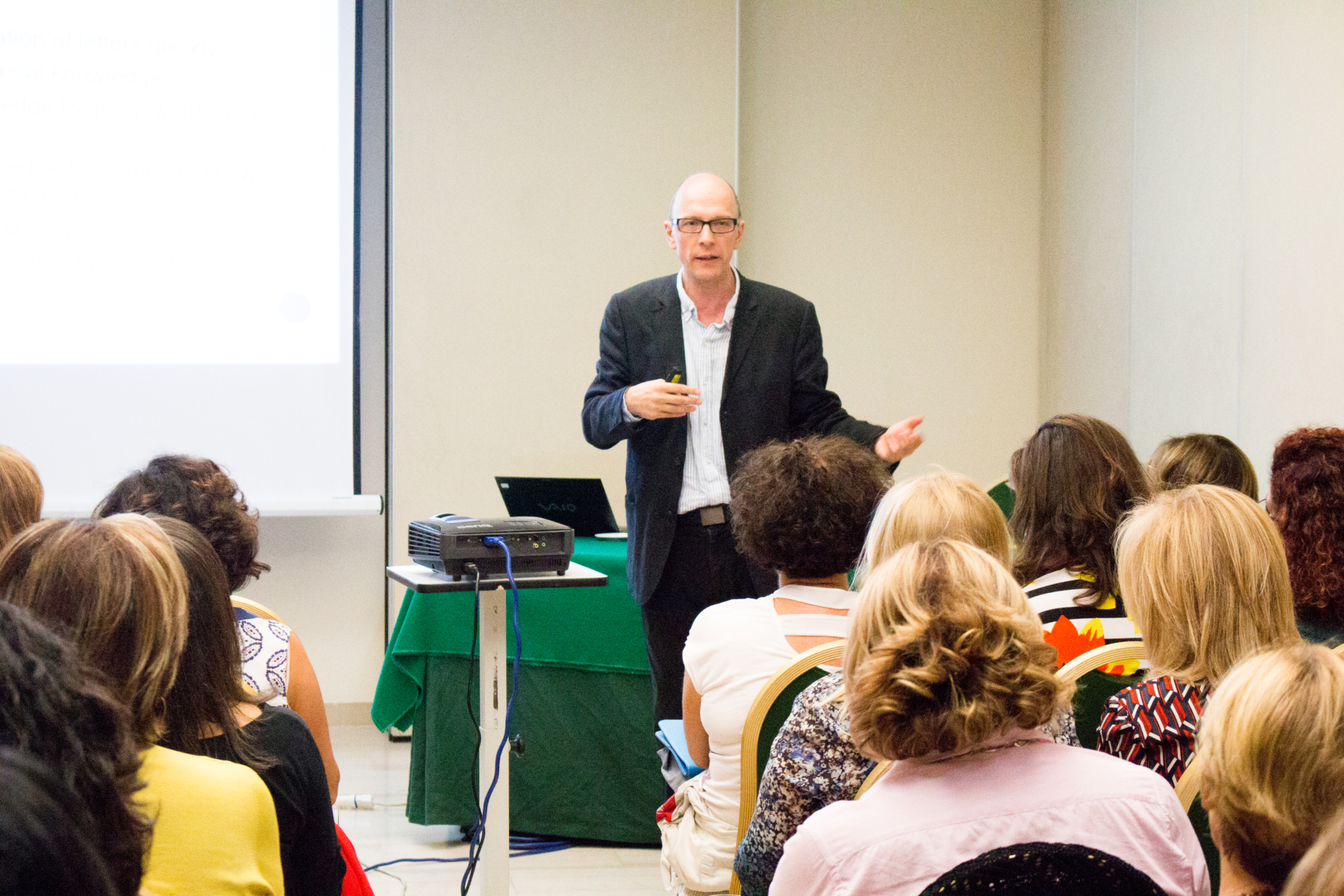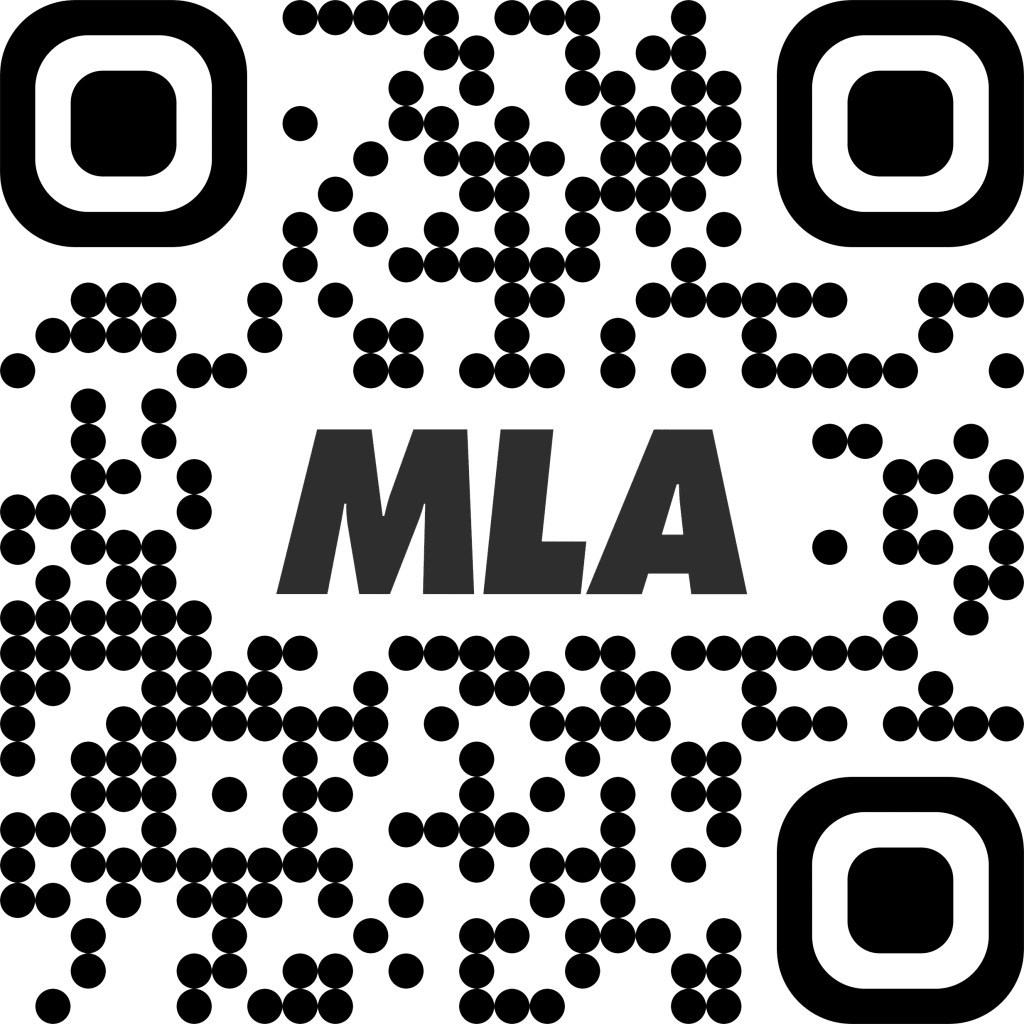I’m sat waiting for a taxi to take me to Palermo airport and soon I’ll be back in the UK, so it seems a good time to reflect on an exciting week.
There’s no doubt that one of the best parts of my job is the opportunity to meet teachers from different parts of the world and the offer from MLA to come to Italy and speak to groups of teachers about one of my particular current interests (the teaching of reading) was far too good to turn down. We started in Bari and moved on to Reggio Calabria, Catania and finally Palermo.
It’s inspiring to meet dedicated teachers, wanting to hear about, and hopefully try out, new ideas and this week was no exception. There’s plenty of evidence that teachers who fully engage in such continuing professional development opportunities report greater levels of motivation for their work afterwards. Also, studies show a clear link between motivated teachers and more motivated learners – so everybody wins!

In the sessions this week, we began by talking about the importance of reading – reading brings life opportunities – and we then critiqued the standard procedures, as set out in most English language teaching course books, for the teaching of reading. The model that prevails tends to prioritize reading as a comprehension test. Learners are given multiple choice questions, true/false questions, pictures to sequence and so on. These exercises tend to have a single correct answer and give an indication of a learners understanding of a particular text. However, they do little to help learners become better readers – they don’t actually teach reading skills and they may be quite intimidating for weaker readers, who may feel constantly judged.
So what else could we do to help learners improve? We should remember that a rich vocabulary knowledge is crucial (estimates suggest that learners need to understand between 95 and 98% of the words on a page to have much chance of understanding the overall message) so teaching vocabulary will always be useful. Research evidence also shows that learners need to recognise words more or less instantly in order to read effectively. Therefore, attention should be paid to this, pushing learners to decode instantly. Time limits can help, along with word games such as Bingo, particularly at lower levels. Learners also need to read texts fluently so simple activities where the teacher reads and the class follows can help because the teacher can read quite quickly, pushing the learners to process the text more rapidly than they otherwise would. Linked to this idea of promoting fluency is the promotion of extensive reading and learners reading relatively easy texts on their own outside class time.
As well as reading fluency we can teach reading strategies. There are several cognitive and metacognitive strategies that have been shown to improve reading but perhaps one of the most useful (as well as easiest to teach) is to encourage learners to ask themselves constantly ‘am I understanding this?’ as they read. If the answer is ‘no’, they need to stop, go back, reread, use a dictionary, or employ any other method they can in order to understand before continuing. Weaker readers do not always recognise when they stop understanding.
We ended the sessions by briefly talking about the need for learners to develop critical reading skills, particularly for online reading, so that they can make informed judgements about which sources can be trusted.
So, it is time for me to make my way back to the UK. Thank you to everyone for making me so welcome and I hope it is not too long before we meet again!
L’intervento di Peter Watkins si inserisce nell’ambito delle MLA Training Session.
Watkins è un insegnante di inglese, educatore, nonchè redattore di pubblicazioni dedicate principalmente ai metodi di insegnamento della lingua, all’apprendimento degli insegnanti, e alla produzione di materiale didattico. Attualmente gestisce un MA e programma di Linguistica Applicata nonchè TESOL presso l’Università di Portsmouth, UK. Tra le sue principali pubblicazioni troviamo: Learning to Teach English (Delta Publishing, second edition 2014, first edition 2005), Cambridge English Teacher: Vocabulary and Pronunciation (Cambridge University Press, 2012), The CELTA Course Trainee Book and The CELTA Course Trainer’s Manual (both co-authored with Scott Thornbury, Cambridge University Press, 2007).










